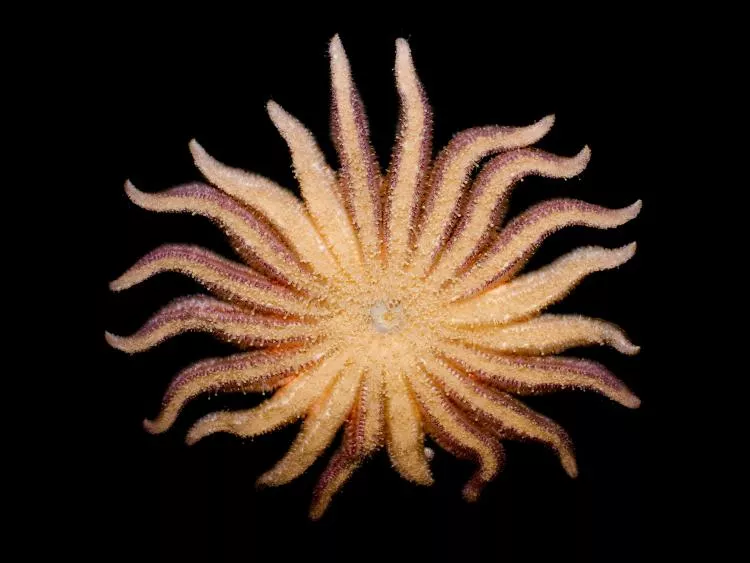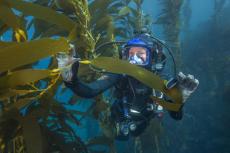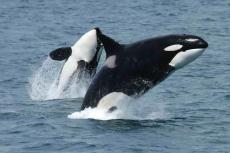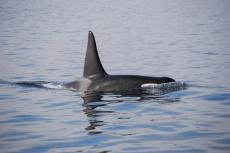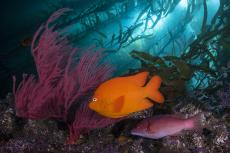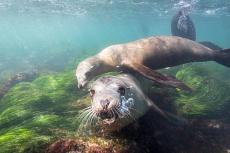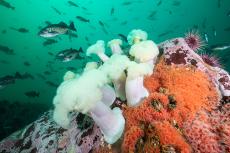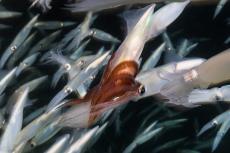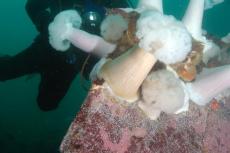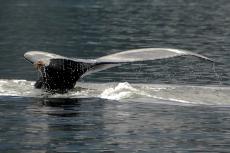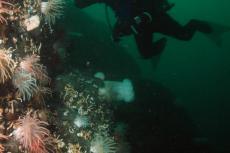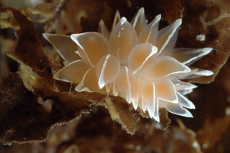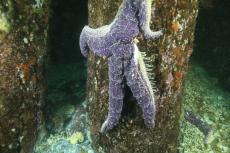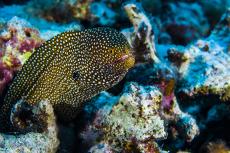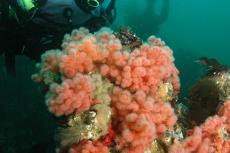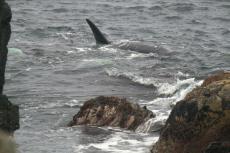Sea stars can help to restore kelp forests
Endangered sunflower sea stars show promise in restoring kelp forest health.
The sunflower sea star was once a common sight along North America's Pacific coast. Although it is now an endangered species, scientists are hailing it as a potential saviour of the region's threatened kelp forests.
Recent research reveals its crucial role in controlling the population of kelp-eating urchins, thus offering a glimmer of hope for these vital marine ecosystems.
Preying on kelp grazer
Scientists at Oregon State University have discovered that sunflower sea stars prey on significant numbers of kelp-eating urchins. This predation can help to maintain, and potentially restore, the health of kelp forests.
"What we saw suggests a clear link between the crash of sea stars, the explosion in sea urchin populations, and the decline in kelp," said paper co-author Sarah Gravem, a Research Associate at the university's Department of Integrative Biology.
Impact of sea star decline
The sunflower sea star's role in this ecological balance should not be taken lightly, given the recent 90.6 percent decline in their population due to an unidentified disease. This subsequently led to an explosion in the urchin population in many regions, placing even more pressure on the already stressed kelp forests.
Breeding sea stars
At the University of Washington's Friday Harbor Laboratories, efforts are underway to breed sunflower sea stars in captivity. This project is a partnership with The Nature Conservancy; it aims to learn more about these sea stars and explore their potential reintroduction to the wild. The goal is to aid the recovery of the sunflower sea star and, ultimately, the health of threatened ecosystems like kelp forests.
Restoring kelp forests
On average, sunflower sea stars consume about 0.68 sea urchins per day, regardless of whether the urchins are starved or well-fed. Hence, if we reintroduced them into their former habitats, they could help keep urchin populations in check.
Their potential role in kelp forest recovery shows the interconnectedness of our marine ecosystems. It underscores the importance of every species, no matter how small or large, in maintaining the health and balance of our oceans.
As we continue to face the challenges of climate change and environmental degradation, it is crucial that we understand and protect these intricate relationships.


